Kenya
Plastic pollution is a major environmental issue but low-income countries are impacted more than most according to a recent report by World Wide Fund for Nature.
More than 430 million tonnes are produced annually, two-thirds of which is used to make products that are soon thrown away with much of this ends up polluting the ocean.
But a local start-up in the Kenyan coastal city of Mombasa is turning this plastic pollution into something useful.
Twende Green Ecocycle is buying plastic waste, collects plastic on beaches, and recycles it into sustainable school furniture.
"In Mombasa alone, everyday over 80 tonnes of waste is released. Out of this, 20 per cent is plastic of which only 5 per cent is recycled. So we have this 95 per cent which ends up in the beautiful ocean and ends up polluting the marine life,” says co-founder Churchill Muriuki.
Muriuki, together with Lawrence Kosgei, Zainab Mahmoud, and Faraj Ramadhan formed the social enterprise in January 2023 in a bid to solve the problem of plastic waste on the coastline in Mombasa and promote sustainable education.
After collection, the plastic is shredded and washed, then mixed with tetra pack waste, before being compressed under high heat to make boards.
These are then used to make relatively cheap school desks and chairs that do not chip compared to traditional wooden furniture.
Kosgei says he was inspired by his own experience of sitting at a broken desk in primary school.
“I remember when I was young, I once sat on a desk which was broken and chipped, so it is really painful to see that the same problem still exists today."
He says that repurposing the plastic waste into school furniture is making something useful that will serve a purpose in the community.
“We are able to, not only to conserve the environment, but also able to promote sustainable education within Mombasa county,” he says.
At Mvita Primary School in Mombasa, the students are happy to receive their new eco-desks and chairs.
"Using traditional wooden desks, the students have to share by three, so it is cramped. However with these eco-desks, each student is comfortable," says teacher, Ronald Katana.
Marine plastics threaten marine species and coastal tourism, and contributes to climate change.
When plastics get into oceans, they break down into microplastics which are consumed by marine animals.




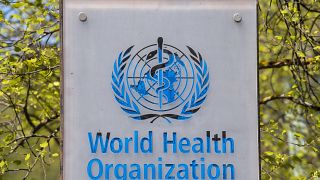

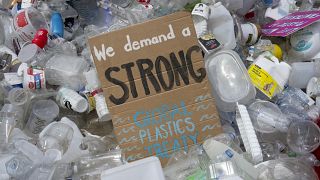
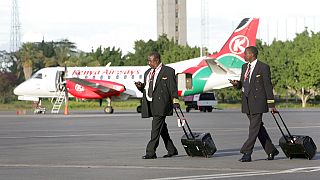

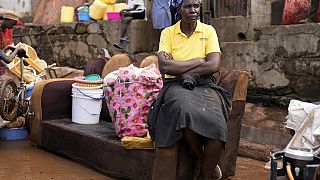
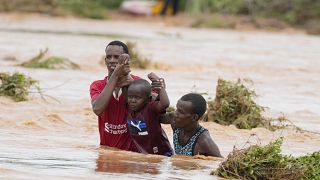

01:02
Pics of the day: April 25, 2024
01:35
Kenya: Local anti malaria drug production signals progress
01:02
Pics of the day: April 24, 2024
01:40
Nairobi residents grapple with floods aftermath
02:29
"Efficient food systems key to tackling food waste", UNEP programme manager
01:02
Pics of the day: April 23, 2024